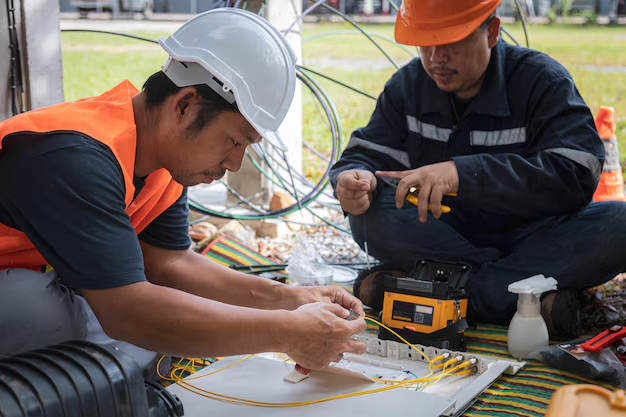Considering a Career as an Electrician? Here's What You Need to Know About Trade School Costs
The path to becoming an electrician is both rewarding and practical, offering a stable career with plenty of growth opportunities. But one of the first questions that aspiring electricians often ask is: How much does trade school for an electrician cost? The answer depends on various factors, including the state, the type of program, and whether financial aid is available.
Understanding the Costs
Trade School Tuition: The average tuition for a trade school specializing in electrical programs ranges from $5,000 to $15,000. Programs can last from a few months to two years, which means the cost can vary based on program length. The shorter the program, the lesser the expense, but it’s essential to ensure comprehensive training.
Books and Materials: On top of tuition, you might need to budget for books, tools, and other materials. These can cost anywhere from $500 to $1,500 depending on the school and what’s included in the tuition.
Certification and Licensing Fees: After completing the program, aspiring electricians must be licensed, which involves passing an exam. Licensing fees range from $100 to $300.
Living Expenses: If you need to relocate or live away from home, consider additional living costs which can quickly add to your total expenses.
Reducing the Financial Burden
When considering trade school, concern over expenses is natural. Thankfully, there are numerous ways to reduce the financial load and even make this educational choice more affordable than a traditional four-year degree.
Government Aid Programs: A great place to start is with federal student aid packages like the Pell Grant. Offering up to $6,495 annually, this grant can significantly offset tuition costs for eligible students.
State and Community Scholarships: Many states offer scholarships for trade school attendees, particularly in high-demand fields like electricity. Be sure to research state-specific grants or community scholarships designed to support vocational education.
Apprenticeships: Another cost-effective path is entering an apprenticeship program. These often provide paid, hands-on training while covering educational costs. Although you might earn less than a fully certified electrician initially, you'll gain valuable on-the-job training.
Tuition Payment Plans: Many trade schools offer payment plans that let you pay tuition in installments rather than a lump sum, easing initial financial pressure.
Work-Study Opportunities: Some programs may allow you to work part-time in related fields while studying, helping buffer against living expenses or additional costs.
Exploring Financial Assistance Options
To make education even more manageable, consider exploring various financial assistance opportunities that align with your needs and circumstances.
- 🏆 Federal Pell Grant Program: Offers need-based grants to low-income students, which don't need to be repaid.
- 🌟 State-Specific Educational Grants: Check with your state’s education department for vocational grants.
- 💡 Apprenticeship Programs: Many programs provide training at reduced or no cost, with the benefit of earning while you learn.
- 🔄 Flexible Tuition Payment Plans: Offered by many trade schools to break tuition into manageable payments.
- 📚 Work-Study: Opportunity to earn money working part-time related to your field while studying.
By considering trade school financing methods, you can embark on a timely, efficient, and economically viable educational journey that sets you on the path to a rewarding electrician career.

